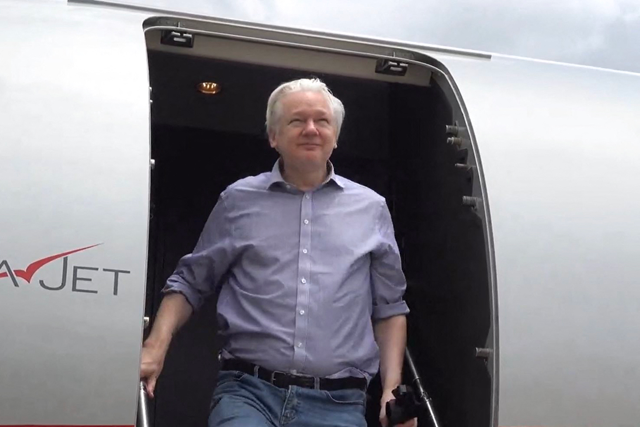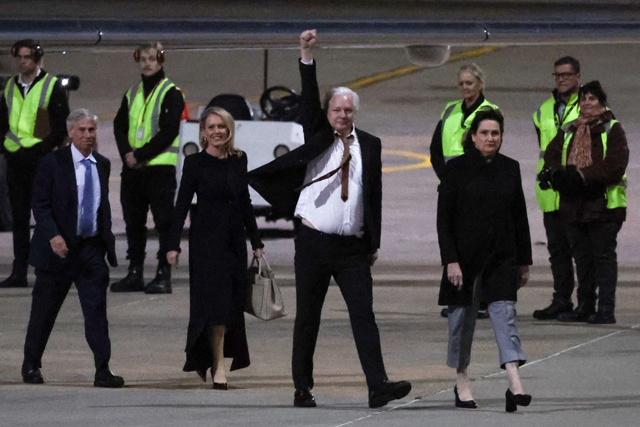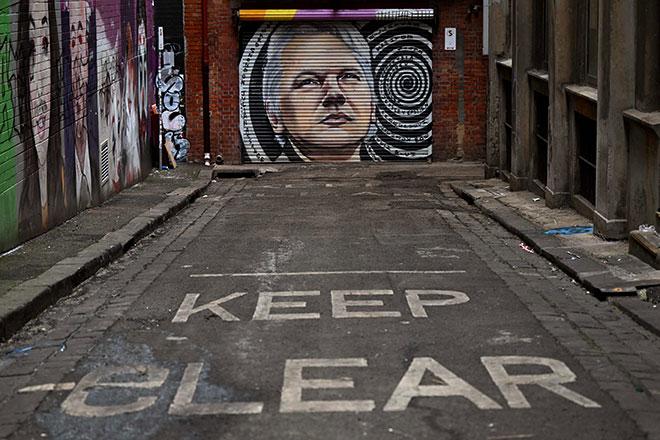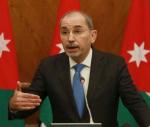You are here
Sick Assange absent at key hearing against extradition to US
By AFP - Feb 20,2024 - Last updated at Feb 20,2024
LONDON — WikiLeaks founder Julian Assange was on Tuesday absent due to illness from a London court hearing his final appeal against extradition to the United States to face trial for publishing secret military and diplomatic files.
Opening the two-day hearing in Assange’s absence, his lawyer Edward Fitzgerald said his prosecution could not be justified.
Washington wants the Australian extradited after he was charged there multiple times between 2018 and 2020 over WikiLeaks’ 2010 publication of files relating to the US-led wars in Iraq and Afghanistan.
“He is being prosecuted for engaging in ordinary journalistic practice of obtaining and publishing classified information, information that is both true and of obvious and important public interest,” Fitzgerland said.
Earlier, he told the judge, Victoria Sharp, at London’s High Court that his 52-year-old client was “not well today” and would not be attending either in person or by video link.
Arriving ahead of the two-day hearing, Assange’s wife Stella thanked a crowd of protesters, saying: “Please keep on showing up, be there for Julian and for us, until Julian is free.”
The crowd outside court chanted “Free Julian Assange”.
“We have two big days ahead. We don’t know what to expect, but you’re here because the world is watching,” Stella Assange added.
“They just cannot get away with this. Julian needs his freedom and we all need the truth,” she said.
The long-running legal saga in Britain’s courts is now nearing a conclusion, after Assange lost successive rulings in recent years.
If this week’s bid to appeal is successful, he will have another chance to argue his case in a London court, with a date set for a full hearing.
If he loses, Assange will have exhausted all UK appeals and will enter the extradition process, although his team have indicated they will appeal to European courts.
Stella Assange has said her husband will ask the European Court of Human Rights to temporarily halt the extradition if needed, warning he would die if sent to the United States.
“Tomorrow and the day after will determine whether he lives or dies essentially, and he’s physically and mentally obviously in a very difficult place,” she told BBC radio on Monday.
US President Joe Biden has faced sustained pressure, both domestically and internationally, to drop the 18-count indictment Assange faces in federal court in Virginia, which was filed under his predecessor Donald Trump.
Major media organisations, press freedom advocates and the Australian parliament are among those decrying the prosecution under the 1917 Espionage Act, which has never been used before over publishing classified information.
‘Enough is enough’
But Washington has maintained the case, which alleges Assange and others at WikiLeaks recruited and agreed with hackers to conduct “one of the largest compromises of classified information” in US history.
Detained in the high-security Belmarsh Prison in southeast London since April 2019, Assange was arrested after spending seven years holed up in Ecuador’s London embassy.
He fled there to avoid extradition to Sweden, where he faced accusations of sexual assault which were later dropped.
The high court had blocked his extradition, but then reversed the decision on appeal in 2021 after the United States vowed to not imprison him in its most extreme prison, “ADX Florence”.
It also pledged not to subject him to the harsh regime known as “Special Administrative Measures”.
In March 2022, the UK’s Supreme Court refused permission to appeal, arguing Assange failed to “raise an arguable point of law”.
Months later, ex-interior minister Priti Patel formally signed off on his extradition, but Assange is now seeking permission to review that decision and the 2021 appeal ruling.
If convicted in the United States, he faces a maximum sentence of 175 years in jail.
Kristinn Hrafnsson, WikiLeaks’ editor-in-chief, told reporters last week that caveats included within the US promises meant they were “not worth the paper they are written on”.
On the same day, Australia’s Prime Minister Anthony Albanese denounced the years-long legal pursuit of Assange, saying “enough is enough”.
It followed the country’s parliament passing a motion calling for an end to his prosecution.
Assange and his wife, a lawyer who he met when she worked on his case, have two children together.
Related Articles
BANGKOK — WikiLeaks founder Julian Assange is on his way to face a final US court hearing on Wednesday under a plea deal that is expected to
CANBERRA — WikiLeaks founder Julian Assange returned home to Australia to start life as a free man on Wednesday after admitting he revealed
SYDNEY — Australia’s prime minister said on Monday he will engage “diplomatically” over the US prosecution of Julian Assange, but he is stan


















